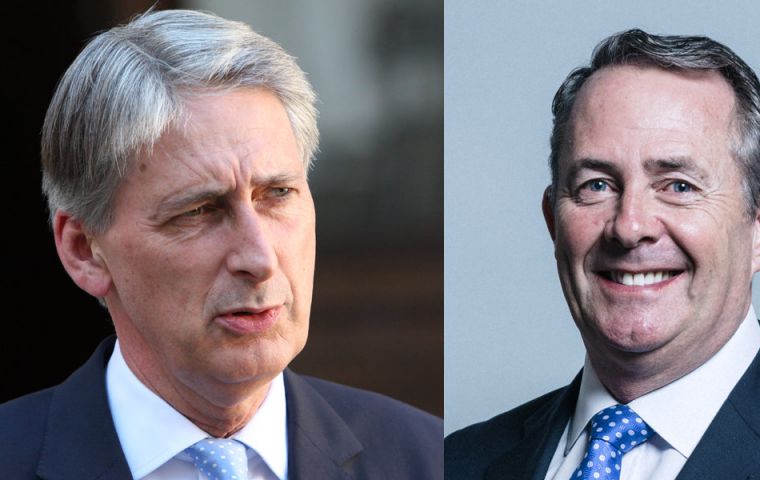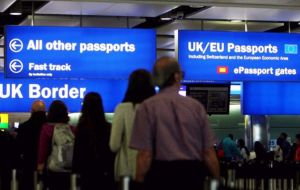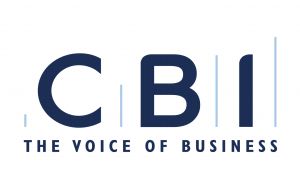MercoPress. South Atlantic News Agency
UK wants to secure a post-Brexit “ambitious new customs arrangement” with the EU
 The UK's departure from the EU's customs union was confirmed at the weekend in a joint article by Chancellor Philip Hammond and Trade Secretary Liam Fox.
The UK's departure from the EU's customs union was confirmed at the weekend in a joint article by Chancellor Philip Hammond and Trade Secretary Liam Fox.  Apparently UK could ask Brussels to establish a “temporary customs union” after March 2019, but during this period it would expect to negotiate trade deals
Apparently UK could ask Brussels to establish a “temporary customs union” after March 2019, but during this period it would expect to negotiate trade deals  Labour's shadow Brexit secretary Keir Starmer said “the fantastical and contradictory proposals provide no guidance for negotiators or for businesses”.
Labour's shadow Brexit secretary Keir Starmer said “the fantastical and contradictory proposals provide no guidance for negotiators or for businesses”.  CBI, which represents British businesses, said the proposal was “encouraging”. “The clock is ticking and companies need confidence to continue investing”
CBI, which represents British businesses, said the proposal was “encouraging”. “The clock is ticking and companies need confidence to continue investing” The UK has set out the “ambitious new customs arrangement” it wants to secure with the EU after Brexit. Ministers said the plans would mean the “freest and most frictionless possible trade” with the rest of Europe and could include a “temporary customs union” after Brexit to prevent border problems as the UK leaves the EU.
Businesses have called for clarity since the UK said it was leaving the customs union - the EU's tariff-free trading area - as part of Brexit. The customs union document is the first of a series of papers to be published by the UK government on key negotiation issues.
On Wednesday it is expected to set out proposals for the border between Northern Ireland and the Republic of Ireland.
Countries in the customs union don't impose tariffs - taxes on imports - on each other's goods. Every country inside the union levies the same tariffs on imports from abroad.
The UK's departure from the EU's customs union was confirmed at the weekend in a joint article by Chancellor Philip Hammond and Trade Secretary Liam Fox.
According to the newly-published government paper, the UK could ask Brussels to establish a “temporary customs union” after it leaves the EU in March 2019. But during this period, it would also expect to be able to negotiate its own international trade deals, something it cannot do as an EU customs union member.
Once this period expires, the UK will look to agree either a “highly streamlined” border with the EU, or a new “partnership” with no customs border at all. The government said the interim arrangements would mean businesses would only have to adjust once to the new arrangements.
All of this will have to be negotiated with the EU - and the two sides have not yet even started discussing trade matters. Other obstacles - including the size of the UK's “divorce bill” - need to be agreed first.
Keir Starmer, Labour's shadow Brexit secretary, said the proposals were “incoherent and inadequate” and were designed to “gloss over deep and continuing divisions within the cabinet”. He added “These fantastical and contradictory proposals provide no guidance for negotiators or certainty for businesses”.
Liberal Democrat Brexit spokesman Tom Brake said the plan would “only delay the economic pain caused by leaving the customs union. We still face the prospect of more red tape for businesses, longer queues at our borders and higher prices for consumers once the transition comes to an end.”
However, the CBI, which represents British businesses, said the proposal was “encouraging”. Its deputy director general, Josh Hardie, added: ”The clock is ticking and what matters now is giving companies the confidence to continue investing as quickly as possible.”




Top Comments
Disclaimer & comment rules-

Read all commentsThe question is why is this piece appearing in Mercopenguin, a British government propaganda organ supposedly devoted to America, South America and the “South Atlantic”?
Aug 16th, 2017 - 04:49 am 0Commenting for this story is now closed.
If you have a Facebook account, become a fan and comment on our Facebook Page!